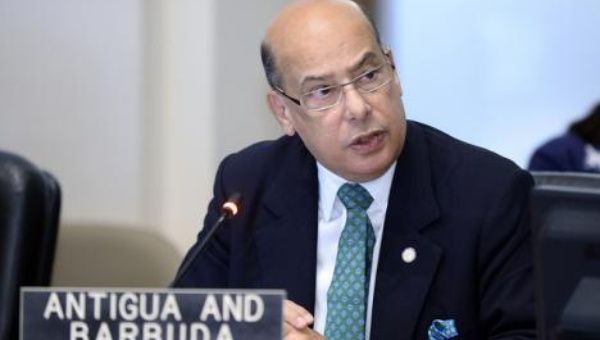Democracy, including free and fair elections, is under siege in the Western Hemisphere, including now in the United States of America (US). But the country that cries out for immediate vigilance is Bolivia.
Even though elections, held on October 18, gave overwhelming and convincing victory to the Movimiento al Socialismo (MAS) and its leader, Luis Arce, right wing groups have organized protests demanding that the results be annulled by military intervention. These protests are being encouraged by the interim government which remains in office until November 8.
The interim government was installed by the military when the October 2019 elections were overturned with the help of governments in North and South America opposed to former President Evo Morales’ socialist stance. These same governments funded and manned the OAS election observation mission and audit team that, questionably, pronounced the elections rigged.
In previous commentaries, I underlined the resentment of MAS by the light-skinned descendants of Europeans who back the Civic Community (CC) party that forms the interim government. MAS is mainly the party of the indigenous people.
The current protesters are being mobilised by the Santa Cruz civic committee (CCPSC), which was in the forefront of demonstrations insisting on the annulment of the October 2019 elections. The protestors might have secured more official support for their current protests were it not for the fact that, in light of the overwhelming victory of MAS and Luis Arce, the OAS and other electoral observation missions were constrained to declare the elections free and fair.
Nonetheless, the demonstrations are gathering steam, fortified by strikes called by the CCPSC on the eve of Arce’s swearing-in as President. The President of the CCPSC, Rómulo Calv, has planned “staggered strikes” to block roads and organize crowds of demonstrators.
Far-right groups have also engaged in violence and are openly demanding military intervention to overturn the elections and to abort Arce’s swearing-in.
On November 1, Arce called on the interim government to act against protesters demanding military intervention to prevent his inauguration. He was supported by the country’s Ombudsman, Nadia Cruz, who called for immediate legal action to be taken. The calls were treated with scant regard, encouraging the organisation of even more protests.
It was indicative of the abuse of power in the OAS that a meeting of the body’s Permanent Council was summoned on November 5 to give the interim government’s foreign minister and her Ambassador to the OAS an opportunity to make political speeches that did not condemn the violent demonstrations or the calls to overturn the election results.
Even more alarming was the support, expressed by some governments, for the interim regime and their justification for the annulment of last year’s elections.
The OAS meeting underscored that some governments in the Americas, including those claiming liberal credentials, remain insistent on undermining other governments that do not bend to their will. At the same time, governments that deserve condemnation for their autocratic actions, have escaped censure.
The silence of the OAS and many governments in the hemisphere about events in Bolivia is contributing to the undermining of democracy and democratic principles that they claim to uphold. The absence of condemnation of the acts of violence by groups demanding that legitimate elections be overturned, is causing the supporters of MAS to take action to protect themselves.
MAS supporters are mounting counter-protests. Violent clashes have so far largely been avoided, but the death of a mining union leader, Orlando Gutiérrez, on 28 October, allegedly from injuries sustained in a beating by far-right protesters, has served to escalate turmoil.
The scene is being set for continuing unrest in Bolivia and for placing Luis Arce’s Presidency in jeopardy. The same governments that are now silent while the far-right groups in Bolivia incite and commit violence against the MAS and its indigenous supporters, will undoubtedly condemn him should he take action to stop them.
It remains doubtful where the military stands in all this. In the protests surrounding the 2019 elections, it did nothing to stop violent protests by the far-right. In contrast, when MAS supporters protested the interim government’s continuous delay of promised elections, the police and army stood by while “shock groups”, organized by fascists, brutally attacked them. It has to be hoped that the military will stand by their constitutional duty.
Bolivia is blighted by the problem that has beset the countries of South America for centuries, and that is the sense by a privileged elitist group that they are entitled to run the country for their own benefit, keeping their booted heel on the backs of the poor indigenous people.
Those elitist groups have traditionally formed lucrative alliances with foreign governments, corporations, and banks – all of which have exploited these countries, enriching, and empowering themselves.
It is time for democracy, the rule of law, and the rights of the majority, freely expressed in general elections, to triumph over autocracy and privileged interests. Bolivia’s elected President must not only be sworn-in, but his government should be given the chance to function democratically in the interest of all the people of Bolivia.
And governments in the Caribbean, which have emerged from the struggles of slavery and exploitation, should support democracy in Bolivia. History summons such Caribbean support.




